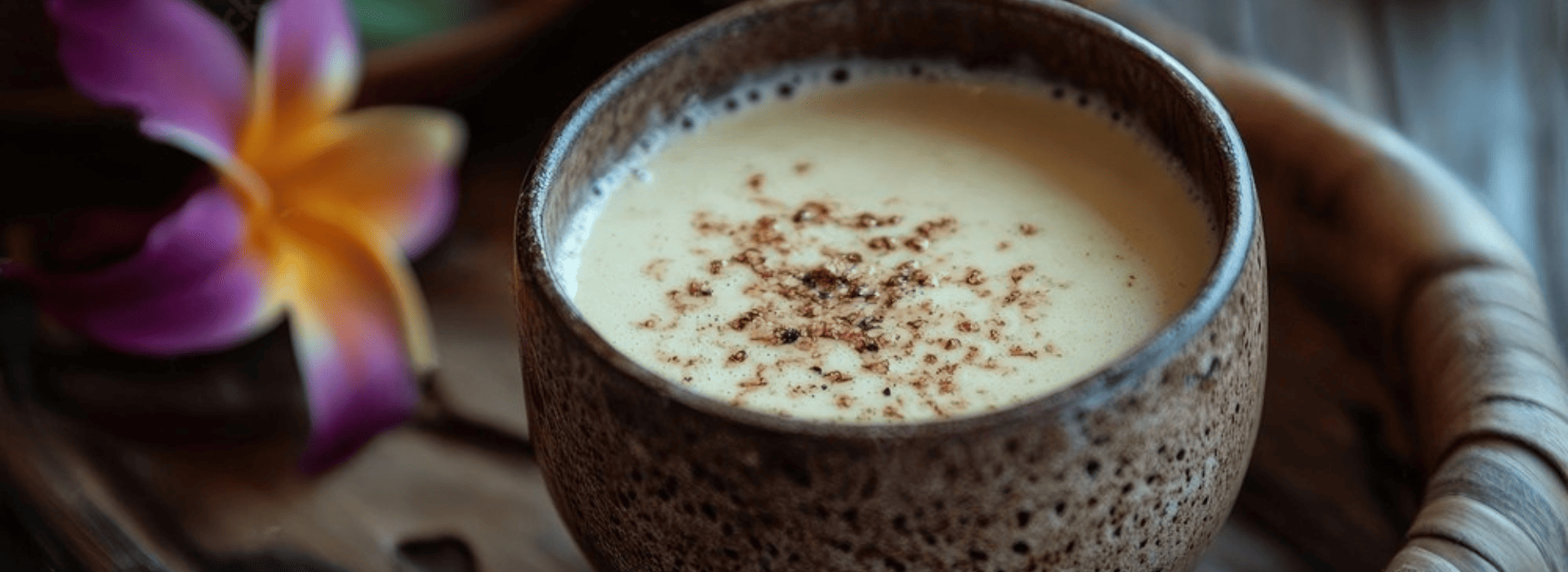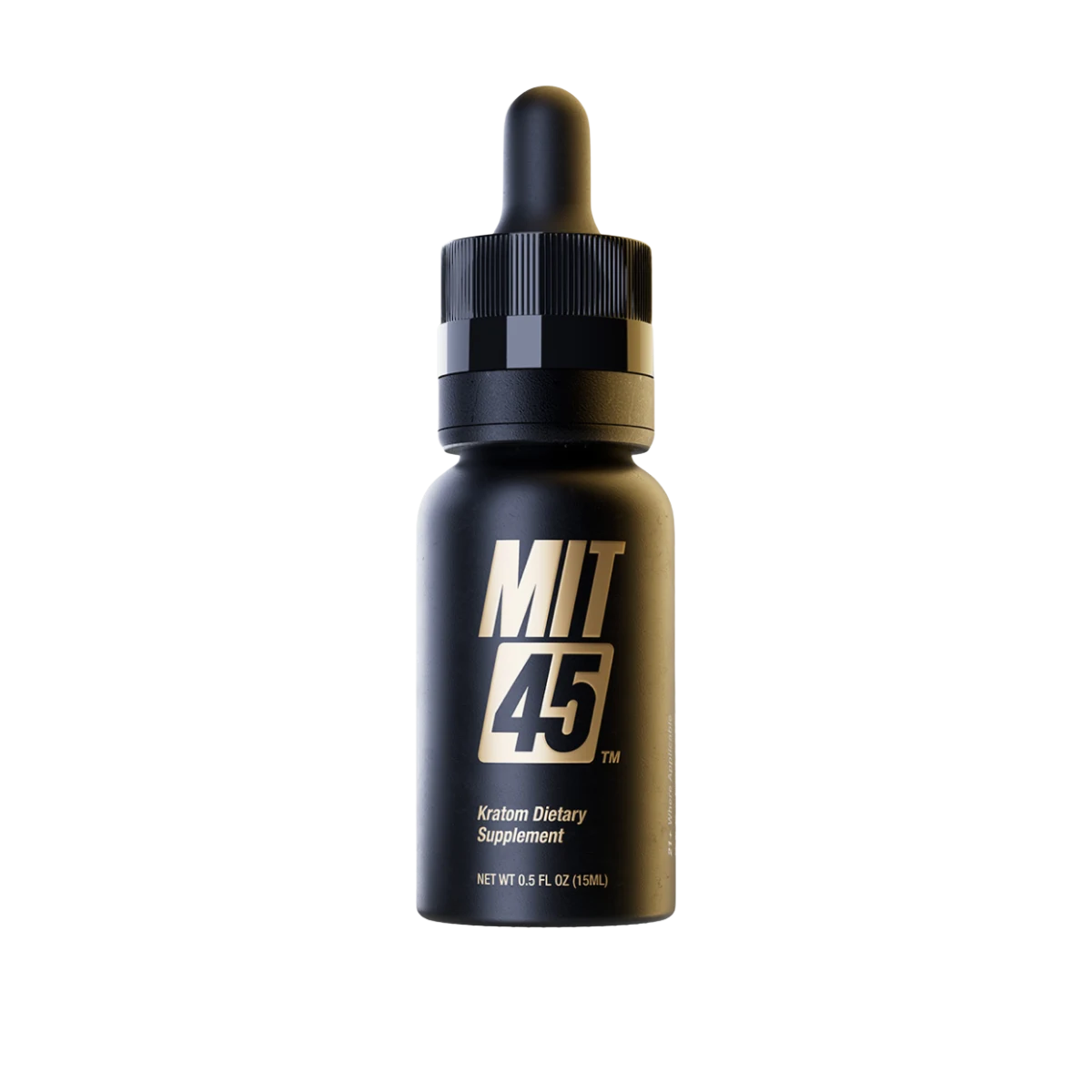Kava Drinks are made from the root of the Piper methysticum plant, traditionally found in cultures of the Pacific Islands. The root is either ground, steeped, or crushed, then soaked in cold water to produce a thick, earthy beverage that has been part of ceremonies and cultural practices for generations. Over time, this age-old preparation has evolved, making it more accessible to everyone in various forms, such as bottled drinks, teas, and flavored tonics.
Kava Drinks are often blended with various fruits or herbs to enhance their taste, along with other ingredients that are mixed to make Kava-infused beverages. While the form factors differ, Kava’s true essence remains the same. Let’s uncover how Kava Drinks are made and what Kava-infused drinks are, and where to buy them.
Kava Drinks: How Are They Made?
The process of making Kava Drinks typically begins with the root of the kava plant, which is either freshly harvested or dried, then ground into a fine powder. In traditional preparation, this powder is mixed with water and strained through a cloth to produce a thick liquid. The process yields a naturally earthy drink that is traditionally served in coconut shells or wooden bowls.
Makers may also add flavored ingredients or natural sweeteners with carbonation to enhance the drink’s flavor. While there are several methods for preparing Kava Drinks, the primary aim is to serve the true essence of Kava.
What Are Kavalactones In Kava Drinks and Why Do They Matter?
Kavalactones are the main active compounds in kava root, forming the foundation of how Kava drinks affect the body. Among at least 18 identified kavalactones, six key ones—kavain, dihydrokavain, methysticin, dihydromethysticin, yangonin, and desmethoxyyangonin—are responsible for most of kava’s effects.
These compounds interact with various neurological pathways, affecting GABA receptors, monoamine oxidase, and even dopamine or cannabinoid receptors, thereby shaping the experience of kava, depending on the blend used.
Kava varieties are often described as:
- Heady: Uplifting, mentally stimulating—favoured for daytime or social use (high in kavain and yangonin)
- Heavy: Richer in sedating kavalactones like dihydromethysticin, methysticin, and dihydrokavain; ideal for evening relaxation
- Balanced: A mix of both heady and heavy effects for a moderate, versatile experience
Because each product—whether a traditional brew, bottled drink, or concentrate—can vary in its kavalactone content, knowing this helps you choose the right type to match your desired experience. Next, let us discuss the different types of Kava Infused Drinks.
Different Types of Kava Infused Drinks
Kava infused drinks feature Kava root as the primary ingredient, with other ingredients blended into juice, water, and flavored liquids. These drinks with Kava offer multiple alternatives for enjoying the benefits.
Traditional Brewed Kava
This is a long-known format made by soaking ground Kava root in water and straining it through a cloth. This thick, earthy drink is commonly served fresh in ceremonial gatherings or kava bars.
Bottled Kava Drinks
Ideal for taking on the go, these pre-mixed drinks often include added sweeteners, fruit flavors, or herbal blends to enhance the taste. They are commonly available in retail stores or online.
Kava Teas
Made into Herbal tea bags or loose blends that contain dried kava root, often combined with herbs like chamomile or peppermint. These are then mixed in hot water, just like regular tea, and are suited for those who prefer a lighter effect.
Sparkling Kava Beverages
Carbonated drinks that blend Kava with natural flavors like citrus, berry, or ginger. These make a drink that offers a fizzy and refreshing option, not too thick like traditional Kava Drinks.
Kava Concentrates & Shots
Highly concentrated liquid forms of kava that come in small bottles or vials. Designed for portability and easy transport, these shots may include additional botanicals or flavor enhancers to mask the natural taste of Kava.
Where To Buy Kava Drinks?
Kava Drinks are readily available in the market nowadays due to an increasing inclination towards herbal products, and the interest in plant-based beverages is continuously growing. Whether you prefer to shop locally or online, there are multiple options to buy Kava infused drinks. Here are a few –
- Local Health Stores – Many herbal-oriented and wellness shops carry a selection of Kava beverages, especially in areas with an interest in herbal products.
- Specialty Drink Shops – Stores that focus on unique or plant-based beverages may offer bottled or packaged drinks.
- Kava Bars – In some cities, you may find Kava-focused spaces that serve freshly made Kava in traditional or modern styles like Kava bars.
- Online Retailers – A wide range of Kava Drinks is available to purchase on online platforms, offering various forms such as teas, shots, and Kava concentrates.
- Cafes & Smoothie Bars – Some cafes and Drink Bars may have kava-based products, particularly those with wellness menus.
Benefits Of Kava Infused Drinks
Kava Drinks are growing in popularity due to their unique properties and their significance in both traditional and modern beverage markets. Here are the reasons why buyers are including Kava in their wellness routines:
- Caffeine-Free Alternative – Kava Drinks do not naturally contain caffeine, making them a potential choice for those who prefer to avoid the jitters associated with coffee or energy beverages.
- Helps Promote Calmness – Kava Drinks help relax the body’s muscles, which may promote a feeling of calmness [1] in your body.
- Herbal and Plant-Based – Since Kava comes from the roots of a plant, these drinks are often grouped with other herbal beverages, appealing to those who enjoy natural or plant-derived beverages.
- Promotes Focus: Kava’s natural properties may promote focus [2] in many people.
- Variety of Formats – Kava Drinks are available in many forms, including teas, ready-to-drink bottles, concentrates, and sparkling blends—offering flexibility dpending on the preference, occasion, or convenience, a buyer can choose.
- Helps with Sleeping – Drinking kava can also help you get a better sleep [3] or if you are having trouble sleeping.
Side Effects Of Kava Infused Drinks
Though multiple benefits are associated with Kava Drinks but some side effects come with Kava too, and here are a few that a buyer may face –
- Digestive Discomfort – Some individuals may experience upset stomach or gastrointestinal discomfort [4] after taking Kava.
2. Drowsiness – Kava has been reported to cause drowsiness [5] in some cases. - Liver Concerns – Rare cases of people facing liver problems [6] have been associated with taking Kava Drinks in some reports.
- Headache or Dizziness – Some buyers have reported mild neurological effects, such as dizziness or headache [7], when taking Kava.
Always consult with a healthcare professional before taking Kava Drinks, particularly if you have liver conditions or are taking medication.
Summing Up: A Closer Look at Kava Drinks and Their Growing Popularity
Kava Drinks have evolved significantly from traditional ceremonial brews to ready-to-drink, convenient wellness options, including teas, sparkling beverages, and concentrates. Kava-infused drinks are gaining widespread popularity in wellness routines, cafes, and specialty shops. With their cultural roots, caffeine-free appeal, and variety of formats, Kava Drinks offer a unique way to explore botanical traditions with a modern essence. If you wish to continue reading more such informational articles, please tune in to our blog section.




